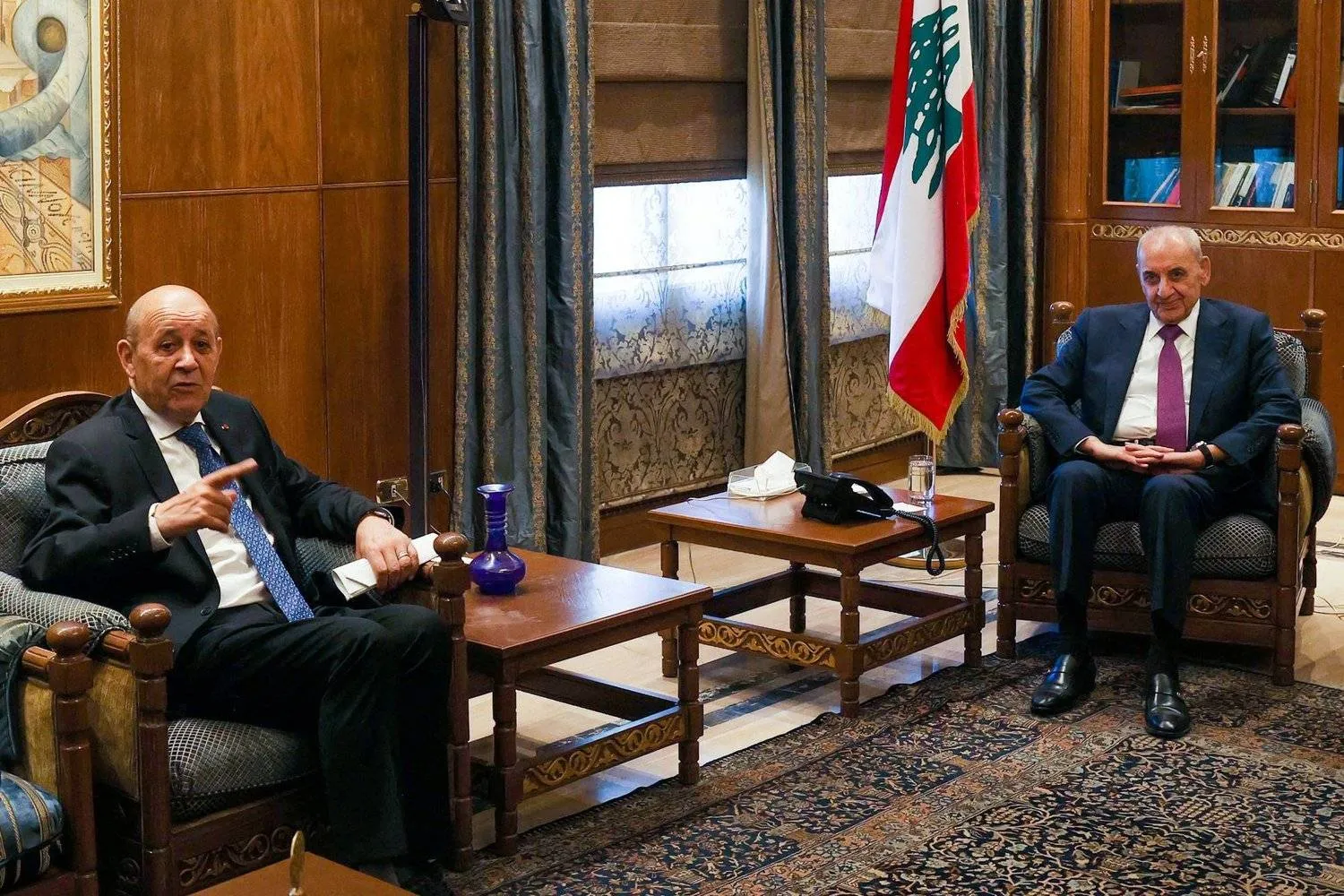French presidential envoy Jean-Yves Le Drian has expressed his support to Lebanese parliament Speaker Nabih Berri’s call to hold unconditional dialogue between rival political powers over the presidential deadlock.
Le Drian kicked off his latest tour to Lebanon on Tuesday by meeting Berri, who said they both agreed that dialogue was the only way forward.
The French official hoped that dialogue over the election of a president would pave the way for a solution to the crisis.
Sources monitoring his tour said he backed Berri's proposal because it was the “only viable initiative that could create a breakthrough in the impasse” as each political camp continues to remain unyielding in its demands.
The opposition has rejected the call for dialogue, instead demanding that parliament hold successive presidential elections until a head of state is elected.
The sources wondered if Le Drian was capable of persuading the opposition to join the dialogue. It also wondered if head of the Free Patriotic Movement MP Gebran Bassil would be persuaded to join the talks after he backed down from supporting them.
Le Drian supports holding dialogue that would go beyond discussing possible presidential candidates and cover “all files without any vetoes and preconditions,” said the sources.
Berri had invited the political powers to take part in the dialogue in August, setting their date for September.
Le Drian later met with caretaker Prime Minister Najib Mikati. He said he had returned to Lebanon “to complete his mission,” adding that he won’t declare his position until after he concludes his talks with all concerned parties.
For his part, Mikati stressed that the beginning of the solution lies in electing a new president and carrying out economic reforms.
Le Drian later met with army commander Joseph Aoun to discuss security in Lebanon and the challenges faced by the military, especially in regard to Syrian refugees and tensions between Palestinian factions.
The envoy said France will continue to support the army and boost its capabilities to help it carry out various duties.
Le Drian is expected to meet with opposition figures on Wednesday, starting with Lebanese Forces leader Samir Geagea.
“Bit by bit, the axis of resistance is running out of options in Lebanon,” said LF MP Fadi Karam on the X platform. “It has failed in imposing its presidential candidate” and dialogue is its way of trying to reach a settlement.









